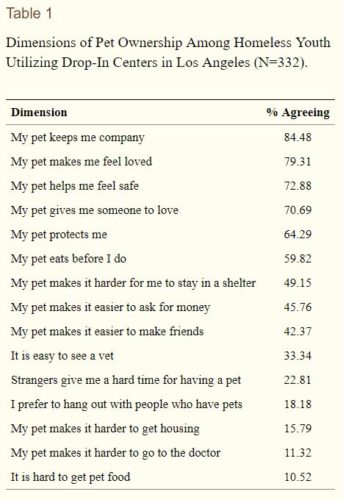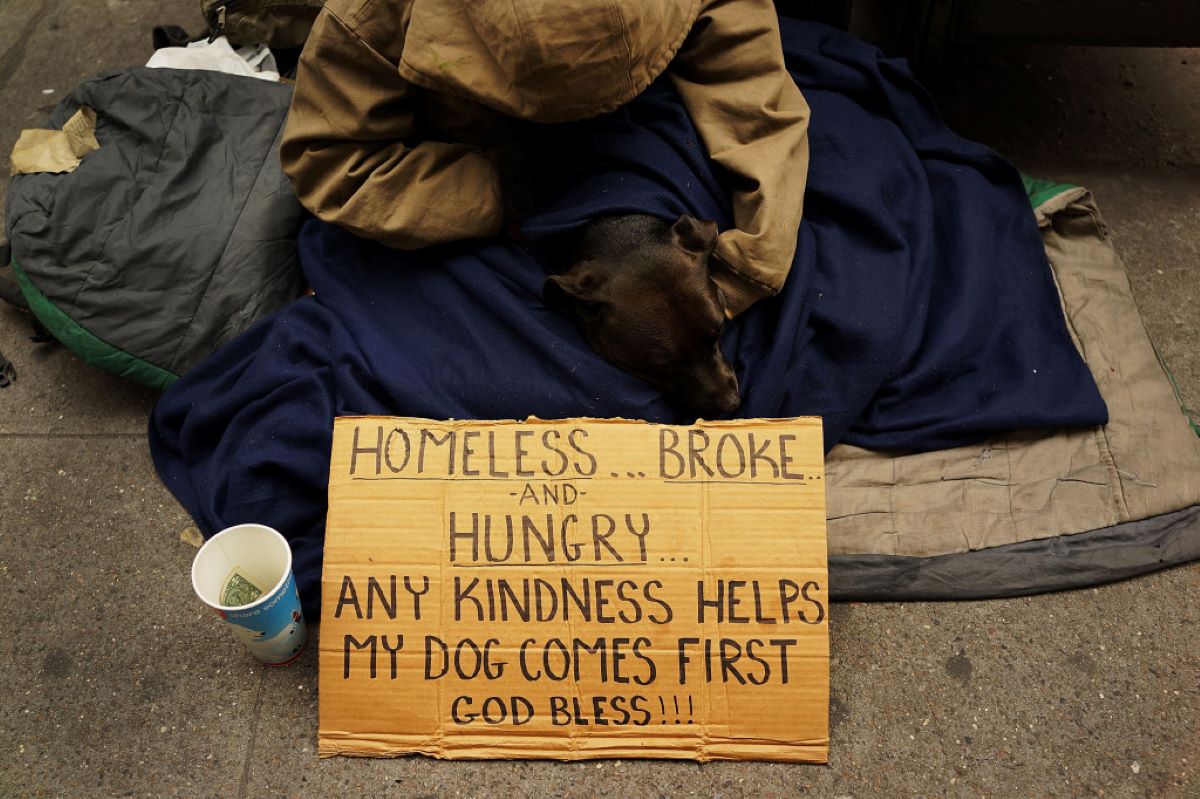“Genevive! Genevive! Get up! Get up!”
– my dad, sometime in the 90s
Spoken with somewhat contradictory emotions of loving concern and anger that only my father could muster, the above words will never leave me. My older sister had just fallen off a horse and wasn’t moving. The steed in question? Lavana. [I never trusted her.] Genevive, the human in this equation, suffered a torn ligament and hobbled around with a Robocop-inspired brace. Half-woman, half-machine. Twenty plus years on, she still suffers occasionally from the tear. But her love of Lavana (R.I.P.) and all things animal has never been stronger.
Beyond an excuse for this contributor’s nostalgia, my sister is also the inspiration for this post. With seemingly everything being viewed through an animal-tinged filter, Genevive suggested that a look at the holistic benefits of pet companionship among homeless individuals would be well worth exploring. Okay Gen, challenge accepted. This topic isn’t without merit either, with as many as 25% of homeless persons owning pets.
What holistic benefits come from pet companionship? Is there a cost?
Pet Ownership Contributes to Well-Being
A study conducted in the US found that homeless pet owners showed a high degree of attachment to their pets, often describing that relationship as their most important. More than 40% of homeless adolescents reported their dogs were a main means of coping with loneliness.
Other studies have shown pet ownership contributes to psychological well-being. Pets play a significant role in reducing depression and providing a need for responsibility. They can also serve as a social catalyst. How? Passerby encountering persons with pets are more likely to smile and converse with their owners.

There are considerable benefits to pet ownership. A more positive mental outlook, decreased feelings of loneliness, reduced rates of depression, an increased feeling of responsibility and social inclusion – it looks like my sister is onto something.
There Ain’t No Such Thing as a Free Lunch
What’s the flip side to this pet ownership coin? A study conducted among 398 homeless youth in the Los Angeles area, 23% of whom had pets, found most of these pet owners reported feeling loved. They also had fewer symptoms of depression and loneliness than their non-pet owning peers. Good news. However, nearly half of these pet owners stated their pets made it more difficult to stay in a shelter. Pet ownership was associated with decreased utilization of housing and job-finding services, and a decreased likelihood of living in a shelter.
One step forward, two steps back. As much as pet companionship may help homeless individuals and improve mental health, it also may ironically be what prevents them from accessing safer living and, if required, detoxification services and counseling that are often made available through shelters.
Simply put, owning and caring for pets may increase barriers to service utilization for homeless persons. Most healthcare facilities, public transportation and housing services cannot serve pet owners’ needs.
In the UK, dog-owners were less likely to use medical care facilities than those without dogs. A separate study of 59 homeless persons across Colorado and California reported many homeless dog owners would rather sleep outside than be separated from their dog.
How Does This Cookie Crumble?
The answer would seem self-apparent: Create shelters that have the capacity to house homeless with their pets. And articles have been written on the subject. But the answer is more involved than it would initially appear. What can definitively be said is that in the current homelessness services space, pet ownership presents barriers that few facilities are able to overcome.
Where does that leave us? What should be a measured, intellectual decision of weighing pros and cons, pet ownership often ends up being an emotional one. And, of course it does. Pets appeal to and soothe the heart. And regardless of the inherent costs of taking care of a pet while homeless, it’s hard to argue the sentiments expressed by four homeless pet owners interviewed by The Guardian. I’m certain that Genevive would agree.













